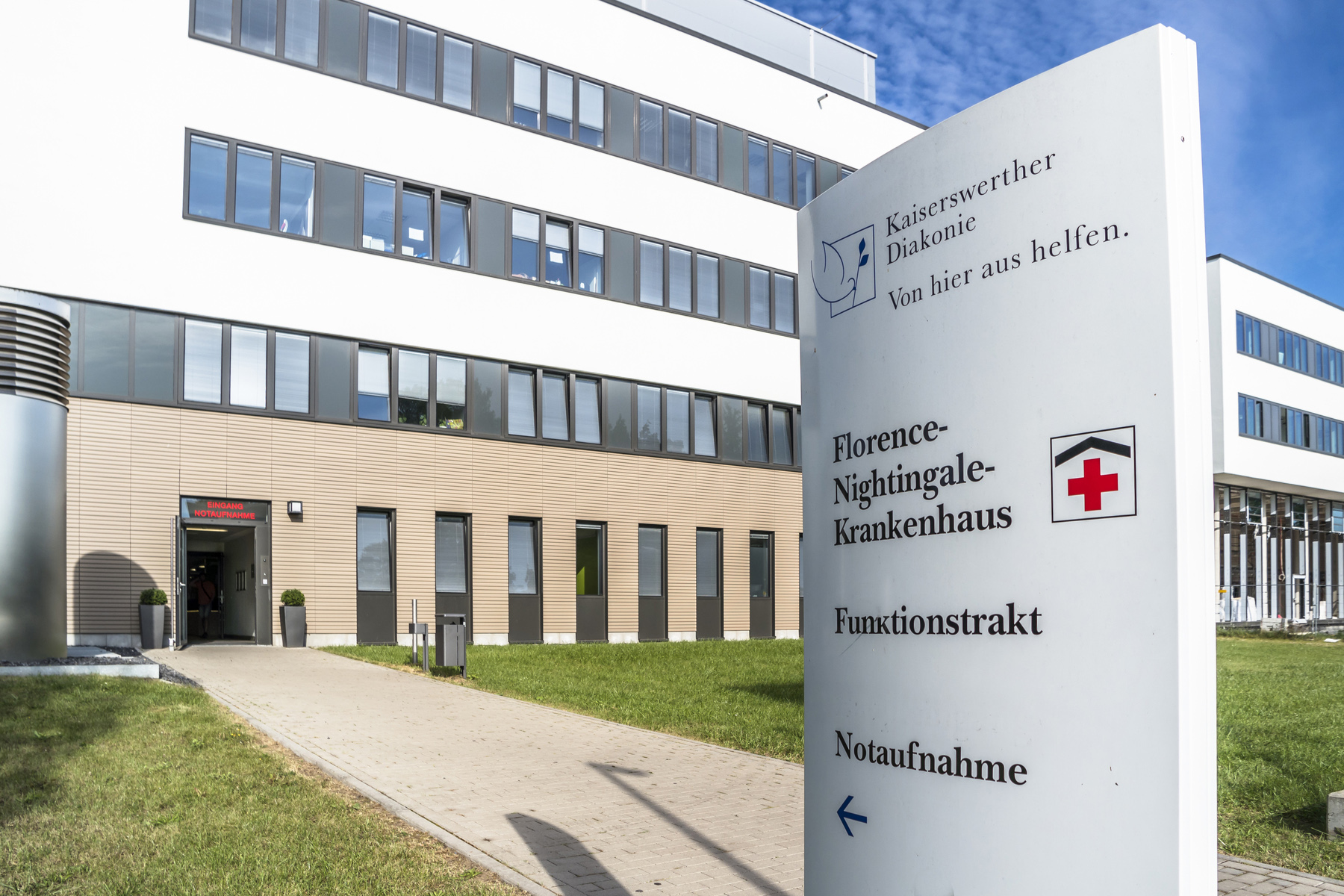Fortunately for internationals moving to Germany, the country boasts one of the top healthcare systems in the world, as well as some of its best hospitals. There are currently just under 2,000 German hospitals, which fall into three categories: public, private, and voluntary/non-profit. Needless to say, if you find yourself in need of a doctor in Germany, you certainly have options.
If you aren’t familiar with the German hospital system, you might be surprised by the number of cultural differences they have compared to your home country. So, to help you get better acquainted, this article includes the following information:
Cigna Global
Want access to the best private medical services in Germany? Speak to the healthcare professionals at Cigna Global today and find a policy that’s right for you. Take advantage of their global network of doctors, specialists, therapists and more with coverage tailor-made for you and your family. If you’re starting a new life in Germany, get peace of mind with Cigna Global.
German hospitals
Wondering how to say “hospital” in German? The word is Krankenhäus, and Germany has three different types. If you’re looking for a hospital, you can choose from:
- Public hospitals (Öffentliche Krankenhäuser)
- Private hospitals (Privatkrankenhäuser)
- Non-profit hospitals (Freigemeinnützige Krankenhäuser)

Federal and local governments fund both public and university hospitals. Public hospitals offer general care and are usually better equipped to handle emergencies.
That said, they may have longer wait times. German public hospitals have serious staff shortages after COVID-19, and an estimated 23,000 vacancies remain unfilled in 2023. Unfortunately, these workforce issues have resulted in a lower level of care in hospitals across the country.
Private hospitals, on the other hand, are usually smaller in size and more specialized, with shorter wait times. These also incur higher costs and mostly cater to those with private insurance plans.
Churches, religious groups, and charitable organizations operate non-profit hospitals. Rather than focus on making a profit, these hospitals simply work to cover their operating costs.
How to access hospital treatment in Germany
According to German law, everyone living in the country long-term must have health insurance. For residents, there are two options for health insurance – public (or statutory) and private coverage.
Generally speaking, most hospitals in Germany accept all patients, whether they have public or private health insurance. However, it’s important to keep in mind that a few smaller, private hospitals may only accept those with applicable coverage. Of course, if you don’t have health insurance at all, you will have to pay out of pocket.
If you need specialized care, a doctor will have to give you a referral to a hospital in order to see a specialist. You will then need to bring your health insurance card (Gesundheitskarte or European Health Insurance Card), referral slip, and personal identification to the specified hospital. To make an appointment, you can either call the hospital or visit its website. Some insurance companies offer mobile apps through which you can make a specialist appointment after referral.
Emergency treatment in Germany
Responding quickly to medical emergencies can help save a life. For life-threatening medical emergencies in Germany, you should dial 112 from any mobile phone or landline and ask for an ambulance (Krankenwagen).

If a situation is not immediately life-threatening but you still need urgent medical attention, you can go to the emergency room at your nearest hospital. You can also dial 116 117 to speak with a doctor on-call.
Anyone can access emergency treatment in Germany, but if you don’t have insurance, you will need to pay for the hospital costs yourself.
German hospital stays: what to expect
Although you can expect top-notch quality care from German hospitals, it might not be what you are used to. Firstly, many cultural differences exist between the German hospital system and the rest of Europe. For instance, the level of comfort and privacy (or lack thereof) provided to patients often surprises foreigners.
While the hospital will give you three basic meals per day, they won’t provide you with other essential items such as a pajamas, towels, or toiletries. Whatever you might need, you should expect to bring with you.
Lack of privacy is another cultural difference in German hospitals. During appointments and tests, it is common for doctors to stay in the room while you undress, which can be shocking for internationals. Also, standard in-patient rooms in German hospitals have between two and four patients each, with no curtain inbetween the beds.
That said, if you have private insurance or are willing to pay extra, you may request a private room; although this will depend on bed availability. Likewise, if you would like to watch television or surf the web, you will need to pay extra. And finally, German doctors are not known for their bedside manner. They might give you a diagnosis or react to your pain with very little sympathy at all.
Hospital costs in Germany
If you have private insurance, the insurance company will cover most of your hospital bill. However, you will most likely have to pay upfront and apply for reimbursement later. If not, the hospital will mail all bills directly to you and you will have to send them to the insurance company yourself.
Notably, if you request any extras, such as internet and television, they will most likely be out-of-pocket expenses; although some private insurance plans do cover them. To be sure, though, you should check the details of your plan beforehand.
Health insurance for hospital costs
If you have statutory health insurance, it will cover your hospital stay, but you will be expected to pay €10 per day at the hospital, for a maximum of 28 days per year. However, children under the age of 18 are exempt from this fee.
Fortunately, there are a number of expat-friendly international health insurance firms that operate in Germany, including:
- Allianz Care
- Cigna Global
- Embea – offers supplementary cover for critical health conditions
You can also visit Expatica’s health insurance quotes page to find more information on private providers. Alternatively, GKV offers a comprehensive list of German public health insurance providers.
Being discharged from the hospital in Germany
Hospital discharge typically happens in the mornings or around lunchtime. When it is time to leave the hospital, each patient receives a discharge letter. This letter contains your personal information, medical findings, contact details for your doctor, and a schedule for follow-up treatments or medications.
You can expect to receive a more detailed letter in the mail a few weeks after you leave the hospital. Also, your primary doctor will conduct follow-up visits and prescribe medicine, according to the treatment plan.

Generally speaking, you can self-discharge if you would like to leave the hospital early. However, there are two exceptions to this: patients who have a contagious disease and patients just out of surgery. If you decide to self-discharge, you will have to sign a form accepting liability if anything happens to you. However, in most cases, your doctor will discharge you, and discuss the process with you a few days before you leave.
Visiting someone in a German hospital
Although hospital visiting hours in Germany vary, they are typically between 14:00 and 20:00 each day. Each specific hospital has its own rules about friends and family members coming to see patients, so be sure to check the institution’s website before planning your visit.
While small children are not always welcome when it comes to visiting a patient, you can get around this if the child is quiet and doesn’t disturb the other patients. If the patient in care is a child, one parent is usually allowed to sleep with them overnight.
Some hospitals offer overnight accommodation for patients’ family members to stay at the hospital if they live far away. This is usually available for a fee, upon request, and only in certain circumstances, so it’s worth asking about if you’re traveling far to visit the hospital.
The best hospitals in Germany
In a 2023 survey (in German) assessing the quality of care in German hospitals, the following institutions ranked top in the country:
- Charité – Universitätsmedizin Berlin: This is the largest public hospital in Germany and is affiliated with both Humboldt University and Free University Berlin. It is one of the most research-intensive hospitals and treats high-profile patients like politicians and diplomats.
- Klinikum der Universität München: Found in Munich (München), this is one of the largest university public hospitals in Germany. It is renowned for its organ transplantation clinic.
- Universitätsklinikum Carl Gustav Carus Dresden: This public university hospital in Dresden specializes in the treatment of complex, serious, and rare diseases
- Universitätsklinikum Freiburg: Located in Freiburg, this university hospital boasts one of the largest specialized heart clinics in Germany
- Universitätsklinikum Heidelberg: With the oldest medical faculty in Germany, Universitätsklinikum Heidelberg has a major focus on cancer treatment and research
You can search all hospitals in the country by region with the German Hospital Directory.
Useful resources
- Bundesministerium für Gesundheit – the main government website providing up-to-date information about healthcare in Germany
- German Hospital Directory – allows you to search for hospitals and specialist departments near you
- DGKJ – provides a list of children’s hospitals and clinics throughout Germany
- Statistisches Bundesamt (Destatis) – provides the latest statistics, data, and news on German hospitals





